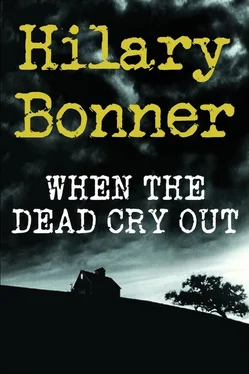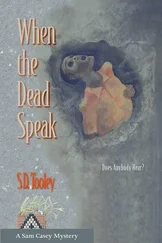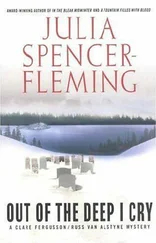“If that bastard Marshall did what we all think he did, if he really murdered his wife and kids, well, you know what, Johnny? He’s got away with it. That’s what I reckon.”
Kelly put down the receiver glumly. That was the news he had expected but not what he had wanted to hear. Apart from anything else, his dossier on the Marshall affair, so meticulously compiled, was never likely to see the light of day now. Certainly the Torquay Times wouldn’t print such legally dangerous material.
But this was much more than a story to Kelly. This was a murder that had happened on his doorstep involving people who were very nearly neighbours. The two little girls had been his mother’s pupils. This was a case that had shaken an entire town to the core. It seemed to be all anyone talked about, in the shop, in the pub, on the street.
The whole of Torquay was under a shadow because of it. The pupils at his mother’s school were tearful and upset, he knew, as they became caught up in all the stories and rumours about what had happened to their little classmates.
And as for his mother — well, she was the sort of old-fashioned headmistress who felt that all the children in her school were her responsibility. She had made it quite clear how much she blamed herself. Kelly didn’t see that changing, either, and it frightened him.
Twenty-seven years later both Karen Meadows and John Kelly could remember it all so vividly. Twenty-seven years later Richard Marshall remained a free man and his wife and children had never been found — dead or alive.
The policewoman and the reporter both had different takes on the affair, and had been touched by different aspects of it in different ways. But the disappearance of Clara Marshall and her children, and all that surrounded it, was not something that anyone even remotely involved was likely to forget.
The worst fears of the people of Torquay back in 1975, and a year later when the police missing-persons enquiry was finally launched, had been realized. The mystery had remained unsolved. The police hadn’t been able to pin anything on Richard Marshall then or since. He’d never been brought to justice for the dreadful crime of which everyone involved had always been convinced he was guilty.
But now a body had been found at sea, preserved by freak circumstances, at least to the degree of still being recognizable as human remains. And Karen Meadows, as she turned off the seafront onto the Newton Abbot road on her way to the hospital, reflected on how this could change everything. She was tensed up, almost trembling with anticipation, and afraid of even beginning to hope that this discovery in the old sunken Nazi U-boat might lead to justice at last.
At the junction she badly fumbled a gear change. She really must relax, keep cool. But that was easier said than done. The Marshall case had already had a profound influence on Karen’s life, as it had on Kelly’s and almost everyone’s who had ever been involved in it. For a start she thought, in a perverse kind of way probably, considering the aura of failure that had always surrounded the police investigation into the Marshall affair, that it was the subconscious influence behind her later decision to join the police force. Neither of her parents had ever discussed her future with Karen when she was growing up. Curious perhaps, but nothing much was ever discussed between the three of them as far as she could remember.
So when a school careers teacher asked her what she wanted to do with her life Karen had been as surprised as the teacher when she heard herself reply: “I want to be a police officer.”
In that curiously objective way of looking at things that she had developed as a very young child Karen had carefully followed the enquiry which had turned out to be so ill-fated, watching all the goings-on in her street, tuning in to the television news bulletins, reading all the newspaper reports, and listening to local gossip, and she had been intrigued. Rather precociously perhaps for a schoolgirl she had lain in her bed at night going over in her mind how she would handle the investigation. She must already have had ambition too, she reflected. After all, she always imagined herself in charge of things, leading the operation. And she supposed she rather liked the idea of being part of such a team. Perhaps she had seen the police force as some sort of substitute for the kind of family she would so much liked to have belonged to.
It was her personal involvement with the Marshall case which had had the biggest effect on her, however. Throughout her life, as the years had passed and Clara and the children continued to be unheard of while Marshall remained a free man, Karen, a bit like Kelly’s mum back in 1976, never ceased to wonder if it would have made any difference had she told anybody what she had known all that time ago.
It was too late now anyway, she reflected, managing her next gear change rather more smoothly. She had always felt that her mother held the key to something, although she was not entirely sure what, but any information Margaret Meadows may have kept close to her chest for twenty-eight years was now going to stay there. Karen’s mother had vascular dementia. Her mind which had been so troubled throughout most of her life had now more or less entirely departed. She had been at the Old Manor nursing home just outside Torquay for two years. It was Karen who had had to make the decision to place her there and she had been consumed with guilt ever since. She still felt she should be looking after her mother even though it was quite impossible, even though she had done more than her fair share of looking after Margaret Meadows, even though Margaret herself was at least partly responsible for her own sorry state. The condition from which she suffered, which caused the brain to suffer an oxygen deficiency, had been brought about in part by her excessive drinking habits.
Whatever the cause, Margaret Meadows would never now be any sort of witness in a murder enquiry, even if she might once have been an important one.
There was something else, too. Karen couldn’t stop seeing those frightened little faces of the Marshall girls inside her head, just as she had seen them all those years ago. And they had been frightened. Both of them. Very frightened. She had no doubt about that now, and it still haunted her sometimes. But back in 1975 Karen had been completely unmoved by the little girls’ plight. Almost unaware of it, in a curious, detached, early-teen sort of way. She didn’t entirely blame herself. She had been just a thirteen-year-old kid herself, struggling to survive in a totally dysfunctional family. Yet she couldn’t help wondering still what might have revealed itself if she had shown just a little more concern for, or even interest in, Janine and Lorraine. Or indeed, if her mother or father had done.
As it was she could recall all too clearly just about her only contribution on what could well have been the last day of their young lives.
“Shut up or I’ll give you one.”
Karen winced at the thought. These were deeply disconcerting memories. Sometimes she was not sure that her extreme youth and difficult family circumstances were excuse enough for her behaviour during that tragic last encounter with the Marshall sisters.
The traffic slowed to a crawl along the Newton Abbot road. Karen lit another cigarette and tried to think about the present, not the past. She knew she was not the only one in the Devon and Cornwall Constabulary who had special reasons for wanting to solve the mystery of the disappearance of Clara Marshall and her children.
The unsolved case had been a blight on the local force for more than a quarter of a century. It still rankled with many of the older officers and even the very youngest and newest had inherited its burden and were familiar with every sorry detail. The fact that two children were presumed to have been murdered made the case a highly emotive one, all the more so because their own father was the prime suspect.
Читать дальше












